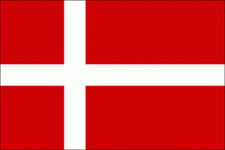
A Special Act for those displaced from Ukraine was approved by the Danish parliament in 2022, mirroring the EU’s temporary protection directive. Residence permits granted under this act, and eligibility to apply, were previously extended by one year in 2023, and the government has now proposed legislation that would extend this again by one year (from March 2025), in-line with similar decisions by other EU Member States.
The proposed legislation also contains another measure which would allow the Minister for Immigration and Integration to put all asylum applications on hold for those who are covered by the Special Act. This measure was met by criticism from the Danish Refugee Council (DRC) and Refugees Welcome, Denmark, who highlight that there are still approximately 700 asylum applications awaiting a first decision which could be affected by this change.
The arguments for including this measure are that 1) processing all cases could attract more applications from people in countries where asylum cases from Ukraine are on hold, and 2) the rights enjoyed in practice by those awaiting an asylum decision under the Special Act are almost the same as the rights enjoyed by those applying for asylum outside this act.
In response to a government consultation request, both of the aforementioned organisations strongly emphasised that the right to apply for asylum and have the case assessed is a fundamental right which should not be affected by political considerations. Both organisations also stressed that those receiving protection under the Special Act do not enjoy the same rights as recognised refugee under international law: they will never have the right to apply for permanent residence, for example. This is particularly burdensome for those who arrived to Denmark as children. The organisations also noted that it does not seem likely that processing all cases would attract new applications from elsewhere, as other European countries continue to process cases themselves.
Now that consultation feedback has been received, the proposed legislation will be formally discussed by members of parliament in 3 rounds. It is likely that the legislation will be passed with few changes.
Details
- Publication dates
- Geographic area
- Denmark
- Source
- Posted by
